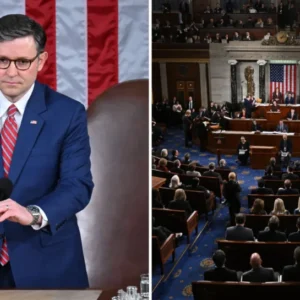A high-stakes legal case is unfolding as the Justice Department challenges a lower court’s temporary block on a presidential order authorizing expedited deportations under an 18th-century law. The outcome could set a significant precedent for the scope of executive authority in national security matters.
The Core Legal Dispute
At the heart of the case is a federal appeals court hearing in Washington, D.C., where government attorneys are seeking to overturn court orders that temporarily halted deportation flights. These flights, based on a presidential proclamation invoking the Alien Enemies Act, targeted individuals allegedly linked to criminal organizations.
The administration argues that the use of this rarely invoked statute enables quick action to address national security concerns. However, the lower court’s intervention raised questions about whether those affected were given sufficient opportunity to challenge their deportation.
During an hour-long session before the U.S. Court of Appeals for the D.C. Circuit, judges questioned both sides on the legal and procedural implications of the deportation order. Central to the debate is whether the individuals in question have received fair hearings and whether the executive branch’s actions align with constitutional protections.
Broader Legal and Policy Implications
This case has significant implications beyond immigration enforcement. Legal analysts note that the ruling could influence the balance of power between the executive and judicial branches, setting a precedent for how similar actions are handled in the future.
If the courts rule in favor of the administration, it could reaffirm broad presidential discretion in handling national security-related deportations. Conversely, if the courts uphold the lower court’s decision to block the deportations, it may reinforce judicial oversight over such executive actions.
Key Arguments on Due Process
A major legal question in the case is whether those subject to deportation under this statute were given the opportunity to contest their classification. Attorneys representing the affected individuals argue that the sudden enforcement of an old statute without a transparent legal process raises due process concerns.
Government officials counter that the urgency of national security threats justifies swift enforcement. They maintain that delays caused by legal challenges could hinder efforts to prevent potential security risks.
The Role of the Judiciary
This case also highlights the ongoing debate over the judiciary’s role in reviewing executive actions related to national security. Some legal experts caution that frequent judicial intervention in such matters could lead to prolonged legal battles that delay enforcement, while others argue that courts play a crucial role in ensuring legal protections are upheld.
While the appeals court’s decision remains pending, the case has already sparked discussions about potential legislative reforms and whether clearer guidelines are needed for the application of statutes like the Alien Enemies Act in modern contexts.
Future of Immigration and National Security Policy
Regardless of the outcome, the ruling is likely to influence future immigration and national security policies. If the administration prevails, it could pave the way for similar measures in the future, potentially expanding executive authority in immigration enforcement.
On the other hand, if the courts limit the use of this law, it could lead to further scrutiny of emergency powers in immigration policy, prompting lawmakers to revisit legislative frameworks governing such actions.
A Pivotal Legal Decision
As the case moves through the appeals process, its significance continues to grow. The ultimate ruling could help define the limits of executive authority, shape judicial oversight in national security matters, and impact future immigration policies.
With both legal and policy stakes high, the decision will likely have lasting consequences for how the government balances security concerns with legal protections.
WATCH:




